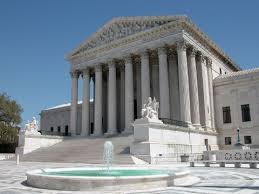Every challenge the Arizona Republican Party has made to the Arizona Independent Redistricting Commission (AIRC) redistricting plan for Arizona has ended in failure.
 The latest attempt has again ended in failure.
The latest attempt has again ended in failure.
Today the U.S. Supreme Court issued a unanimous opinion in Harris v. Arizona Independent Redistricting Commission (.pdf) rejecting the challenge to legislative districts from the Original North Phoenix Tea Party founder Wesley Harris. Arizona Secretary of State Michele Reagan filed an amicus brief in support of Harris. Attorney General Mark Brnovich had to argue in favor of the Secretary of State at oral argument before the Court.
A three judge panel of the U.S. District Court for Arizona, by a vote of 2 to 1, entered a judgment for the AIRC. The majority found that “the population deviations were primarily a result of good-faith efforts to comply with the Voting Rights Act . . . even though partisanship played some role.” 993 F. Supp. 2d 1042, 1046 (Ariz. 2014). Appellants sought direct review in the U.S. Supreme Court.
Justice Breyer delivered the unanimous opinion of the Court:
The Fourteenth Amendment’s Equal Protection Clause requires States to “make an honest and good faith effort to construct [legislative] districts . . . as nearly of equal population as is practicable.” Reynolds, 377 U. S., at 577. The Constitution, however, does not demand mathematical perfection. In determining what is “practicable,” we have recognized that the Constitution permits deviation when it is justified by “legitimate considerations incident to the effectuation of a rational state policy.” Id., at 579.




